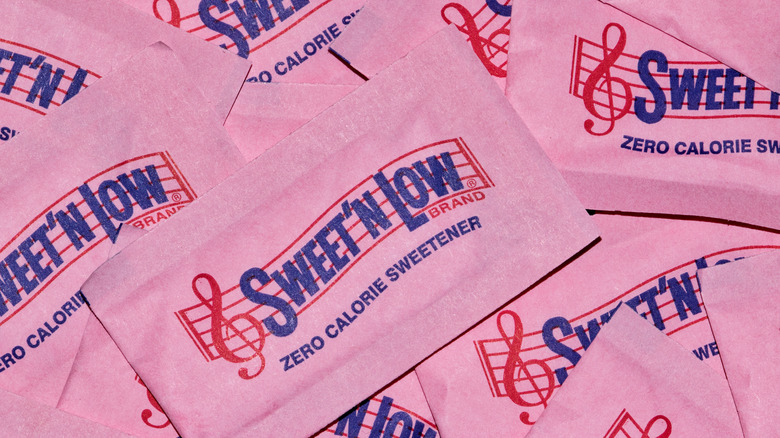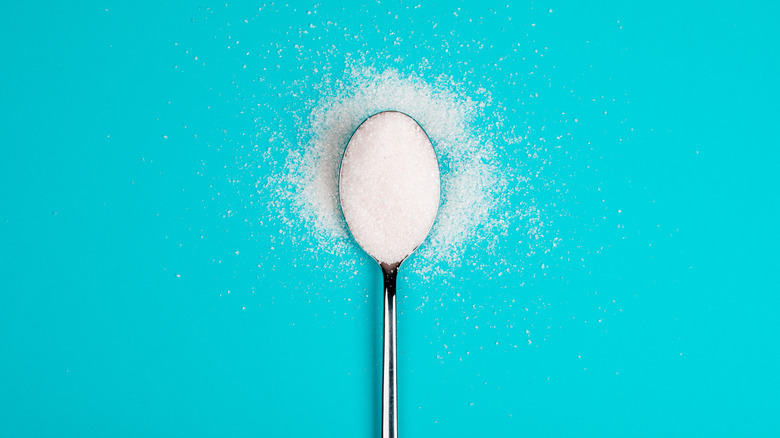The Truth About What Artificial Sweeteners Are Really Made Of
Artificial sweeteners are a variety of food additives and sugar substitutes that mimic the flavor of sugar (via Mayo Clinic). They are often included in low-calorie and low-sugar foods and beverages to help people cut back on sugar. For instance, artificial sweeteners are used to sweeten candy, baked goods, soda, pudding, and jam. Unlike sugar, however, artificial sweeteners are much sweeter and may even leave an aftertaste in your mouth, per the Mayo Clinic.
As a matter of fact, aspartame is 200 times sweeter than regular table sugar, while sucralose is 600 times sweeter than table sugar (via Healthline). That's because artificial sweeteners are largely made from synthetic chemicals, making their sweetness more intense. While artificial sweeteners don't contain any calories, they are still recognized as sweet by the taste receptors on your tongue. Other types of common artificial sweeteners approved for use in the United States include saccharin, advantame, neotame, and acesulfame potassium, per Healthline.
Are artificial sweeteners bad for you?
While artificial sweeteners may be able to help you reduce your daily sugar intake, that doesn't mean that they're necessarily good for you, especially if you consume them every day. While they can't be absorbed by the body, artificial sweeteners can reach and alter your gut microbiota, which can lead to metabolic syndrome, conditions that increase your chances of developing type 2 diabetes, heart problems, or stroke (via Verywell Health). A 2014 animal study published in Nature Reviews Endocrinology found that mice who consumed aspartame, saccharin, or sucralose for 11 weeks developed an intolerance to glucose due to the change in their gut microbiota.
Artificial sweeteners may also promote weight gain. Some research has suggested that artificial sweeteners can increase hunger and sugar cravings, which can lead to overeating and weight gain. According to a 2010 review published in the Yale Journal of Biology and Medicine, artificial sweeteners encourage sugar cravings and sugar dependence, which can promote weight gain.


